QuestionI used to be signed up for a Pedigree e-newsletter and I know they mentioned this once, but I have searched for the original posting and can't find it anywhere. Our almost 2-year old, male, 50-pound, possibly pit bull/shepherd mix dog occasionally has these spasms where it seems as though he is not able to breathe. They usually only last a few seconds and then he is fine. They do not seem to occur immediately after any specific thing like exercise, eating, drinking, etc. He woke us up this morning with a series of several of these spasms, the worst it's ever been. His heart rate did not seem to increase during this incident (as I had my hand on his chest during one episode) and he was able to wag his tail and move, so it wasn't like a seizure (which my mom's dog has and which I have seen several of). He makes this awful kind of snorting sound upon inhalation, you can see his rib cage working hard, and it just seems as though he can't get any air. I've tried looking on the internet under bronchiospasm, bronchospasm, soft palate, epiglottis, asthma, airway constriction, spasm, wheezing, and others, but I either come up with these medical surgical articles about experiments they've done on dogs or articles related to humans having allergies to dogs. I did read one posting where another person asked this question in relation to a short-snouted dog and someone replied that she's heard it was the soft palate sticking and if you covered the nose and made them take air through the mouth it stopped the spasm, but she didn't know what caused the spasm or anything else about it. We've tried that a couple of times this morning and it has seemed to work so far, but my core concern is what the underlying problem is, if it will get worse, if there is any treatment, etc. I would appreciate any assistance you would be able to give.
AnswerMost likely reverse sneezing.
It is a spasm caused by an irritation of the soft palate. The soft palate is a soft, fleshy tissue extension off the hard palate, or roof of the mouth. Small dogs in particular can exhibit this behavior and certain breeds may be predisposed to it.
Some animals can have this condition for their entire lives, or it may develop as the dog ages. During the spasm, the dog will usually turn her elbows outward and extend her neck while gasping inwards with a distinctive snorting sound. Gently massaging the throat area or pinching the dog's nostrils shut so she must breath through her mouth can help shorten the episode. Sometimes taking the dog outside in the fresh air stops the spasm. Once the attack ceases, all goes back to normal.
It is thought that the pharyngeal spasm can be caused by a number of irritants, including dust and pollen, or household chemicals. Moreover, some dogs can launch an episode after eating, drinking or running around, or while pulling on the leash.
If your dog experiences this behavior fairly frequently and the episodes are severe, a trip to the vet is in order to determine other possible causes, which can include viral infections, polyps, excessive soft palate tissue, and nasal mites. However, many cases of reverse sneezing appear to have no identifiable cause.

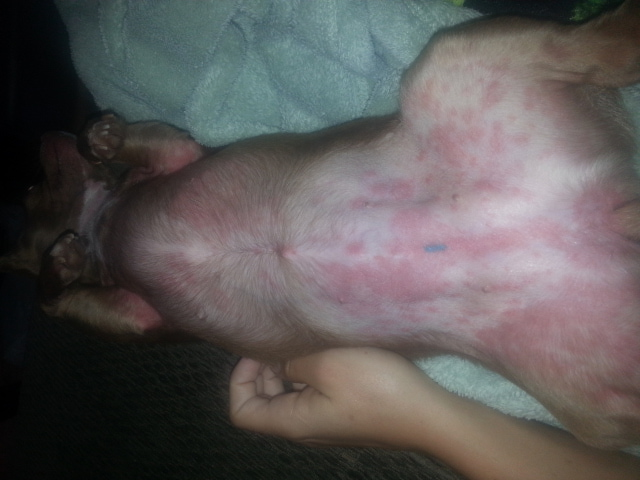 skin rash
Question
Chihuahua Rash chihuahua rash
My
skin rash
Question
Chihuahua Rash chihuahua rash
My
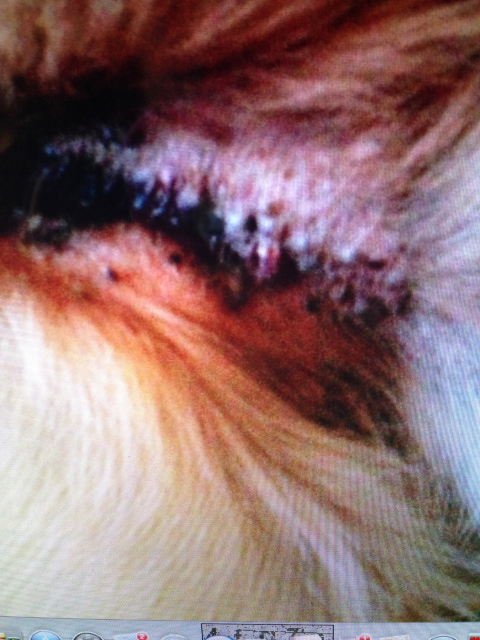 Dermatology question
Question
Gracie Gracie 2
Hi Dr. Louis,
I
Dermatology question
Question
Gracie Gracie 2
Hi Dr. Louis,
I
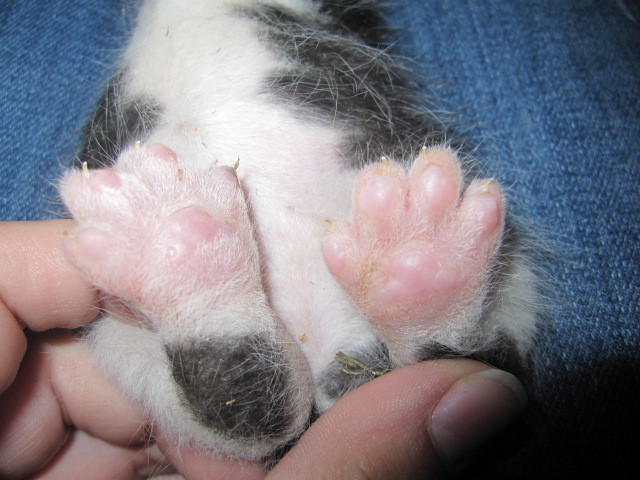 baby kitten w/ all 4 swollen paws
Question
Her back feet
okay... I have 2 young cat
baby kitten w/ all 4 swollen paws
Question
Her back feet
okay... I have 2 young cat
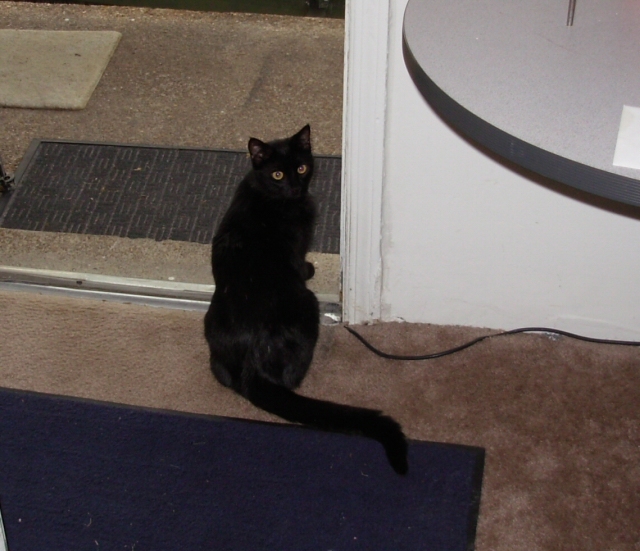 Excessive Consumption
Question
Tiny - About 12 months
Hello,
Background:
I h
Excessive Consumption
Question
Tiny - About 12 months
Hello,
Background:
I h
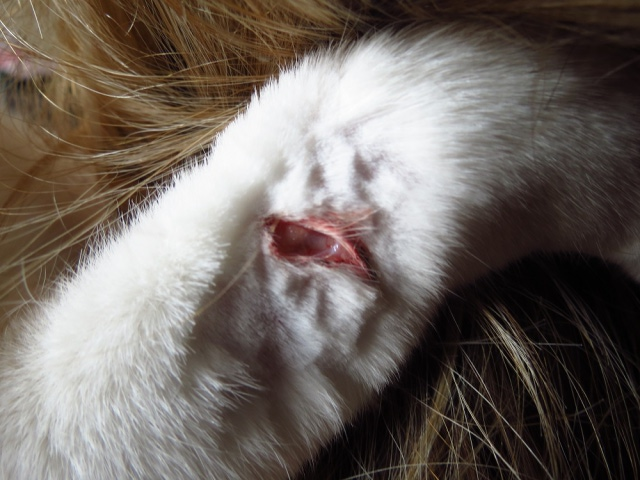 Cat with cut on front leg
Question
The cut
Hi, this morning I noticed that
Cat with cut on front leg
Question
The cut
Hi, this morning I noticed that